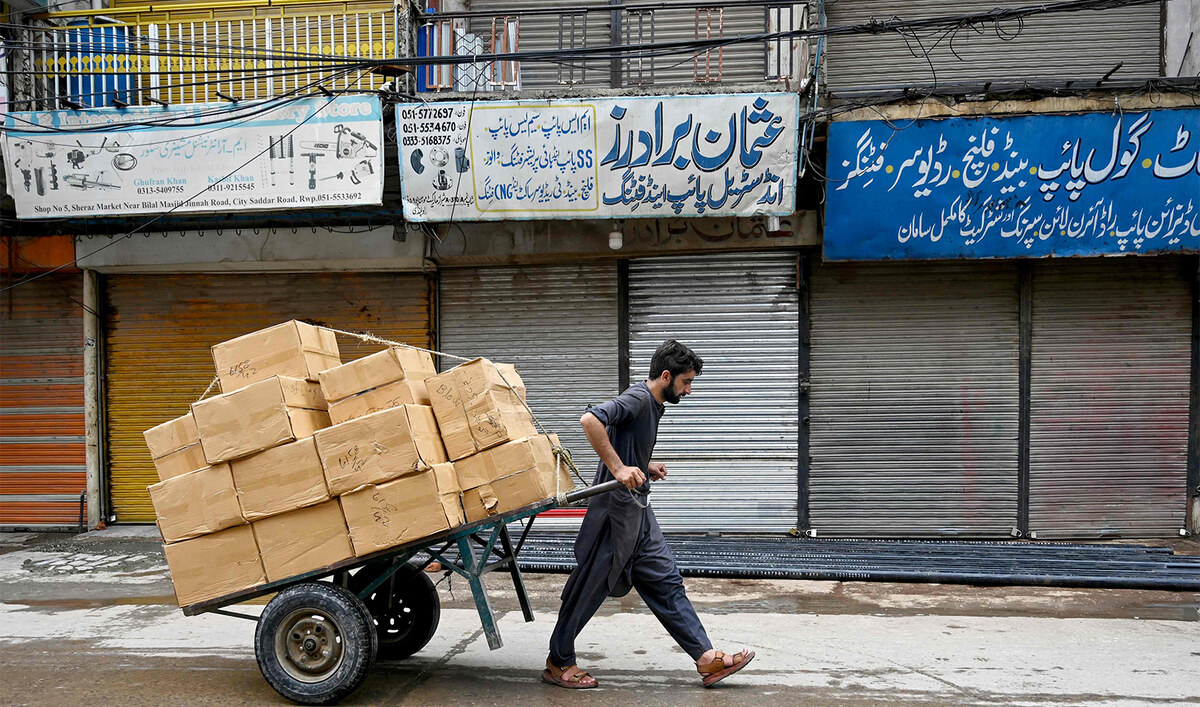KARACHI: The father of a journalist from one of Pakistan’s top television news networks said on Tuesday he was picked up from his home in Karachi city by plain-clothes and uniformed officials and his whereabouts were unknown while the family feared for his safety.
The journalist, Hafiz Maaz Bin Khalid, works as a Digital Media Coordinator for ARY News. A video shared with media by the family showed officers taking Khalid away in a police van from Karachi’s Buffer Zone area early on Tuesday morning.
“They arrived in three mobile vans and a double cabin, climbed over the wall, and took my son with them, claiming they were taking him for investigation to the Crime Investigation Agency center,” Khalil Ur Rehman, the journalist’s father, told Arab News, adding that officers, who were both in police uniform and plain clothes, did not produce warrants when asked.
“They took him along with his national identity card and mobile phone. When I went to the CIA center, I was told my son was not brought there. I am unaware of his whereabouts,” the father added.
“They had informed us that they were taking Maaz for questioning for an hour. Almost ten hours have passed, but we are still unaware.”
Senior Superintendent of Police Zeeshan Siddiqui told Arab News police had not arrested the journalist and declined further comment. Neither police nor family commented on why Khalid might have been arrested but two of his colleagues at ARY who declined to be named said they believed it was over recent social media posts critical of the army and police.
Journalists in Pakistan are increasingly reporting on growing media censorship, with many blaming Pakistan’s powerful military for putting pressure on critical voices. The military and the government deny they suppress the press.
In a report released on May 3 to coincide with World Press Freedom Day, the International Federation of Journalists watchdog said more than 300 people associated with the information industry in Pakistan had faced repressive state tactics designed to quell dissent during the course of about a year.
“Over 300 journalists and bloggers this year were affected by state coercion and targeted, including dozens of journalists arrested for durations between several hours to four weeks and nearly 60 served legal notices or summons for their journalism work or personal dissent online,” the IFJ Pakistan country report for 2023-2024 said. “At least eight were charged for alleged sedition, terrorism and incitement to violence – all serious charges carrying lengthy sentences and even the death penalty.”
The report also said four journalists were killed during the period under review while at least 59 journalists and bloggers were charged with sedition, terrorism, incitement to violence, defamation or contempt.



















